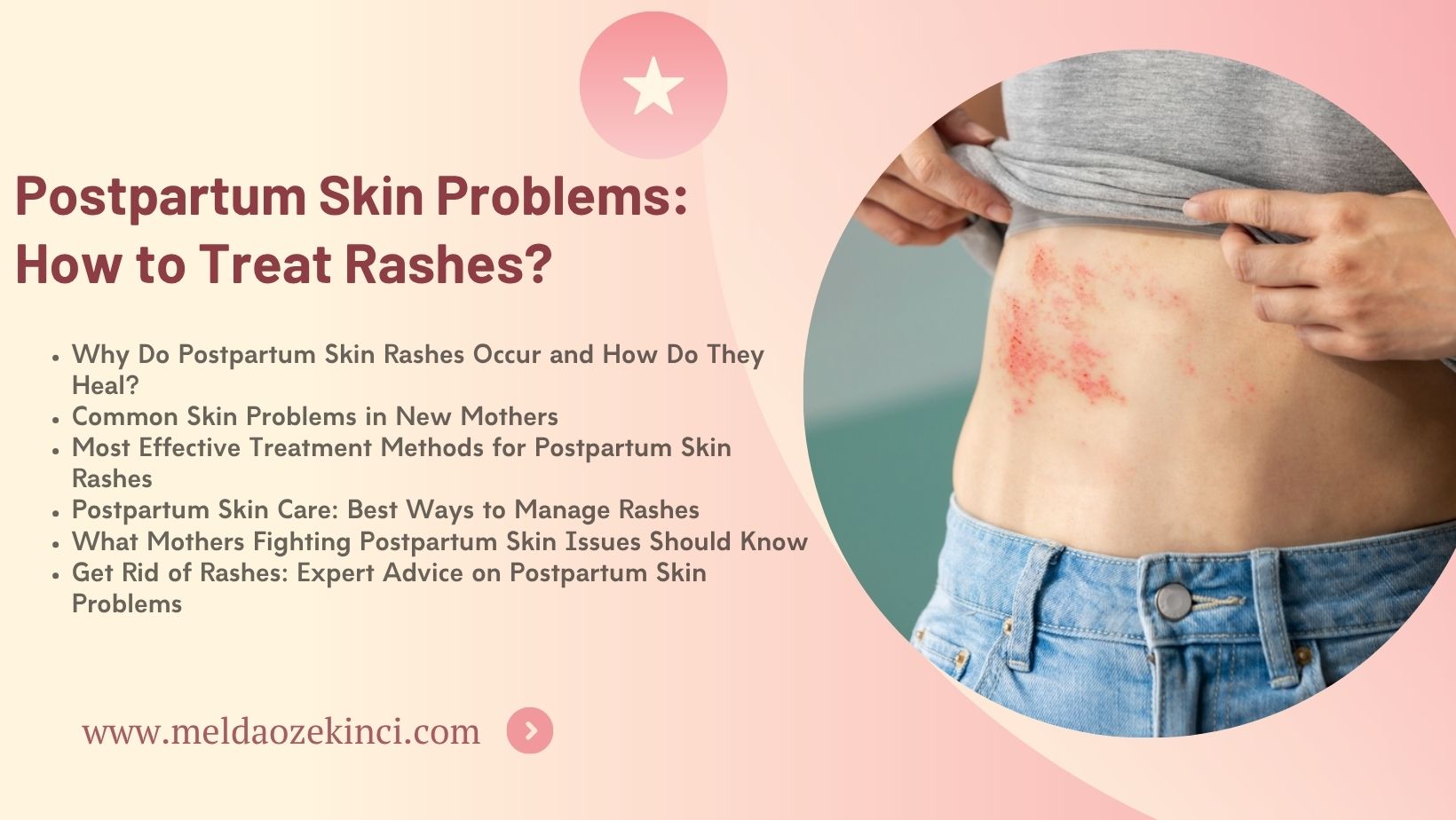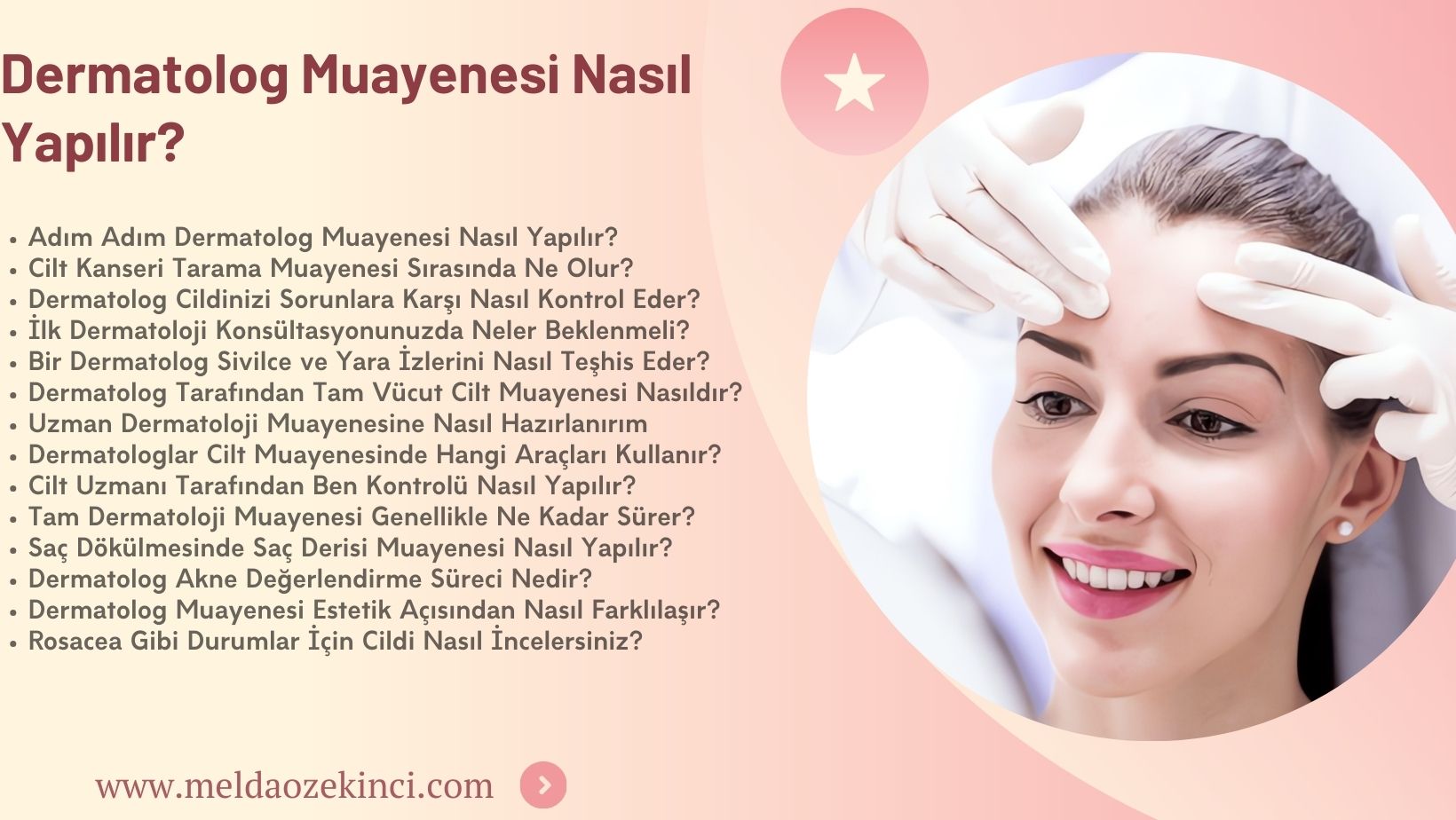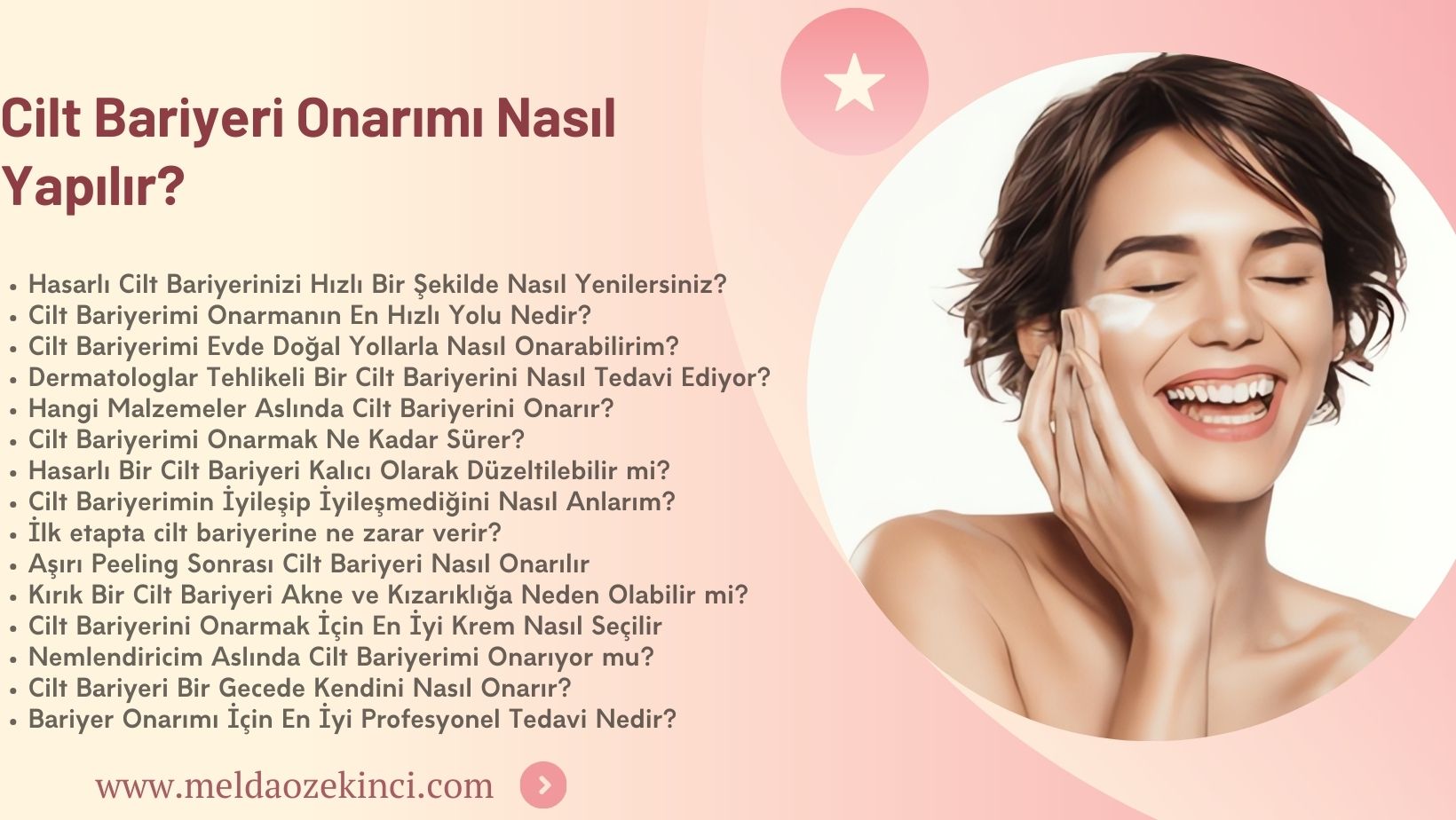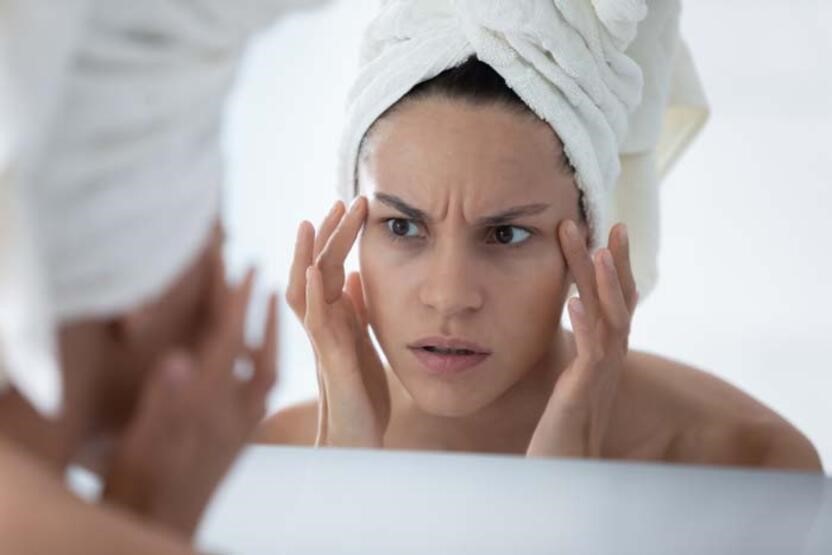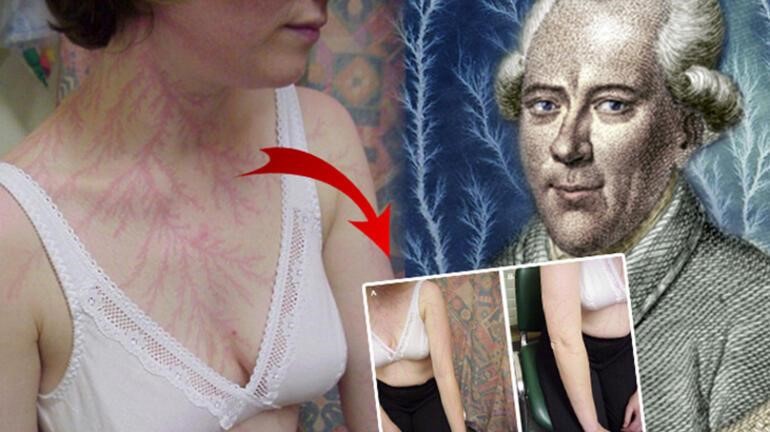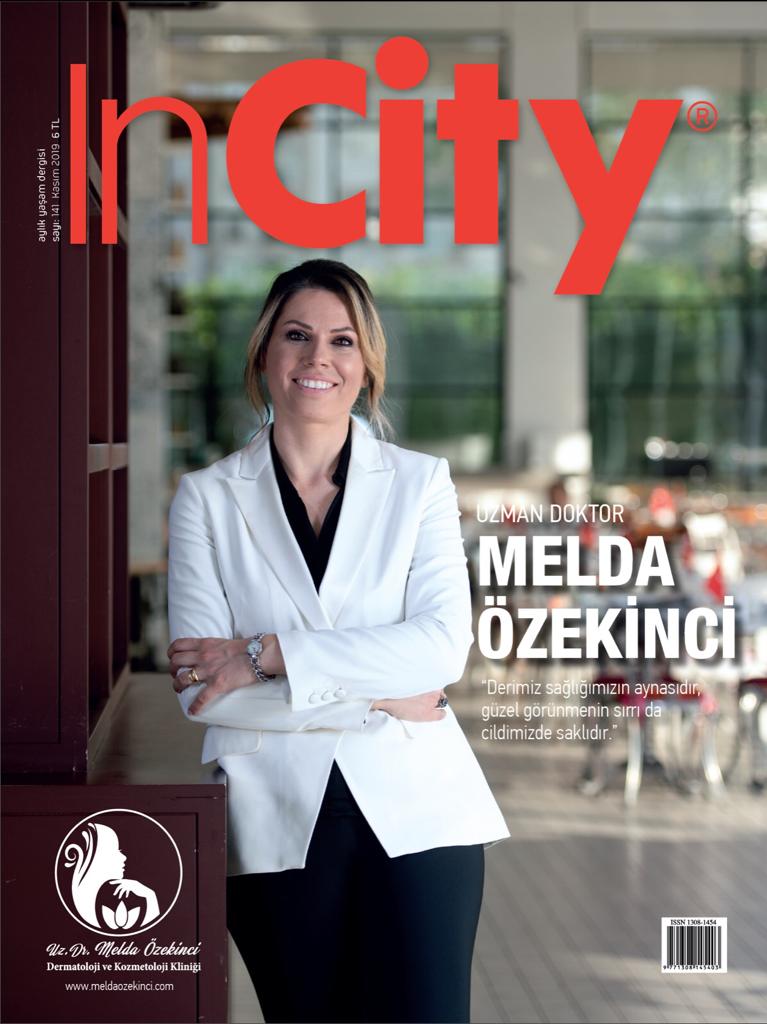Table of Contents
- Why Do Postpartum Skin Rashes Occur and How Do They Go Away?
- Common Skin Problems in New Mothers
- What Are the Most Effective Treatment Methods for Postpartum Skin Rashes?
- Postpartum Skincare: Best Ways to Deal with Rashes
- What Mothers Fighting Postpartum Skin Issues Should Know
- Get Rid of Rashes: Expert Advice for Postpartum Skin Problems
Why Do Postpartum Skin Rashes Occur and How Do They Go Away?
One of the most common problems women face in the postpartum period is skin rashes. The main reason for these rashes is hormonal changes in the body. Hormone levels that rise during pregnancy drop suddenly after birth, leading to skin sensitivity and irritation. At the same time, changes in the immune system weaken the skin's defense mechanism, increasing the risk of rashes.
Another important factor is stress and fatigue. Physical and psychological stress in new mothers directly affects skin health and can cause rashes such as eczema, dryness, or redness. Additionally, some medications or skincare products used postpartum can trigger allergic reactions, exacerbating rashes.
During this period, it is very important to cleanse and moisturize the skin with gentle and natural products. Avoiding chemical-based products and using care suitable for sensitive skin can accelerate the healing of rashes. Adequate water intake and balanced nutrition are also essential for supporting skin health.
If rashes are severe, itchy, or persistent, a dermatologist's check-up is necessary. Specialists can provide personalized treatment options to permanently resolve skin issues. While postpartum rashes are generally temporary, without proper care, they may become chronic.
It should be noted that every mother's skin type is different, and the cause of rashes can vary from person to person. Therefore, early intervention and conscious care are the most effective solution for healthy skin.
Common Skin Problems in New Mothers
The most common skin problems in new mothers arise from hormonal changes and stress. Sudden hormone fluctuations after childbirth disrupt the skin's natural balance, leading to various issues. The most frequently observed problems include skin rashes, dryness, redness, and sensitivity.
Additionally, acne and hyperpigmentation are common issues in new mothers. Increased melanin production during pregnancy may lead to dark spots on the skin postpartum. Also, sleep deprivation and stress can slow down skin renewal, increasing the risk of long-term problems.
Providing sufficient moisture and using natural skincare products during this period is important to alleviate these issues. Avoiding products with harsh chemicals and opting for light, soothing creams helps maintain skin health. Regular use of sunscreen also plays a critical role in preventing spot formation.
Another common skin problem in new mothers is eczema. Changes in the immune system can trigger eczema, causing itching and redness that negatively affect daily life. In such cases, dermatological support is necessary to determine the appropriate treatment and care methods.
In conclusion, new mothers should approach skin care carefully and seek expert help if needed. Hormonal changes can cause these problems, but proper care can help control them effectively.
What Are the Most Effective Treatment Methods for Postpartum Skin Rashes?
Postpartum rashes are common due to hormonal changes and bodily stress. Choosing effective treatment methods helps the skin heal quickly and reduces discomfort.
The first step is maintaining skin moisture. Moisturizing creams and soothing products reduce irritation and accelerate healing. Also, choosing fragrance-free and hypoallergenic products allows safe care for sensitive skin.
Topical corticosteroids applied under medical supervision are very effective, especially for severe rashes and itching. However, long-term or uncontrolled use can cause side effects, so they should only be used with expert guidance.
Additionally, natural methods support treatment. For example, oatmeal baths or aloe vera gel can reduce redness and inflammation. Natural products carry a lower risk of irritation and are suitable for new mothers.
Nutrition and stress management are also crucial. Antioxidant-rich foods support skin renewal, and reducing stress helps normalize hormonal balance.
If rashes persist or worsen, consulting a dermatologist is the best approach. Professional support ensures correct diagnosis and treatment, restoring healthy skin appearance.
Postpartum Skincare: Best Ways to Deal with Rashes
Many women experience skin rashes in the postpartum period. Hormonal changes and physiological stress make the skin more sensitive, leading to various problems. Postpartum skincare is therefore crucial.
First, maintain the skin's natural balance using gentle and fragrance-free cleansers. Products containing harsh chemicals can further irritate the skin. Similarly, using moisturizers prevents dryness and speeds up the healing of rashes.
One effective way to deal with postpartum rashes is using natural skincare products that reduce irritation. Aloe vera, oat extract, and chamomile soothe the skin and reduce redness.
Healthy nutrition and adequate water intake also support skin health. Antioxidant-rich foods help skin cell regeneration. Stress management and sufficient sleep are essential for postpartum skincare.
If severe rashes or persistent skin problems occur, professional support from a dermatologist is necessary. Treatments under expert supervision reduce rashes and help restore the skin's health.
What Mothers Fighting Postpartum Skin Issues Should Know
The postpartum period is challenging physically and emotionally. Skin issues during this time significantly affect a mother’s health. Postpartum skin problems usually result from hormonal changes, stress, and disrupted sleep patterns.
The most common problems include rashes, dryness, itching, and acne. These symptoms increase due to a weakened skin barrier and temporarily affected immune system. Therefore, proper skin care and appropriate product selection are very important.
Mothers should use moisturizers suitable for sensitive skin, avoid extreme hot or cold water, and steer clear of products with heavy chemicals. Drinking plenty of water and maintaining a balanced diet supports skin renewal.
Mental health also affects skin. Stress management and sufficient sleep accelerate skin recovery. If postpartum skin problems persist, professional dermatological support is essential. Early intervention prevents long-term issues.
Mothers dealing with postpartum skin issues should pay attention to these points for better care for themselves and their babies.
Get Rid of Rashes: Expert Advice for Postpartum Skin Problems
Many women experience skin rashes and other skin problems during the postpartum period. This is a result of hormonal changes and the body’s adaptation process. Rashes, itching, and redness can be challenging for new mothers. Experts emphasize the importance of proper care and patience during this time.
The first step is to maintain the skin’s moisture balance and prevent irritation. Avoiding excessively hot showers and using gentle, fragrance-free, and hypoallergenic products soothes the skin. Additionally, nutrition plays a critical role in postpartum skin health; foods rich in vitamins and antioxidants contribute to the healing of rashes.
Stress can trigger skin problems in the postpartum period. Therefore, stress management techniques and sufficient sleep are important factors in supporting skin health. If rashes persist or worsen, consulting a dermatologist is necessary.
Experts note that natural skincare products and, when needed, medical treatments are effective. Topical creams and lotions, in particular, help reduce inflammation and accelerate the healing of rashes.
By following these recommendations, it is possible to get rid of postpartum skin rashes and achieve healthy skin. If you want to revitalize your skin, you can explore our aesthetic and rejuvenation services.
 English
English 


